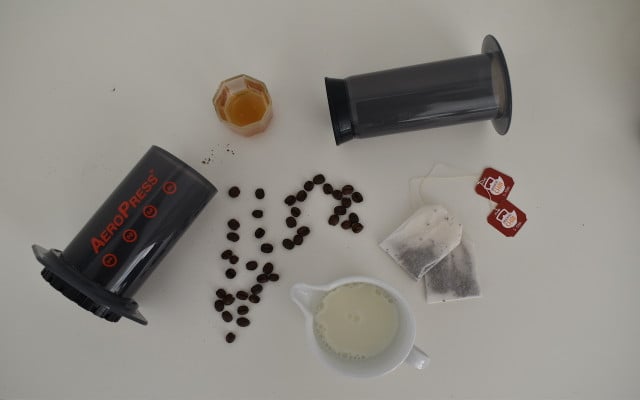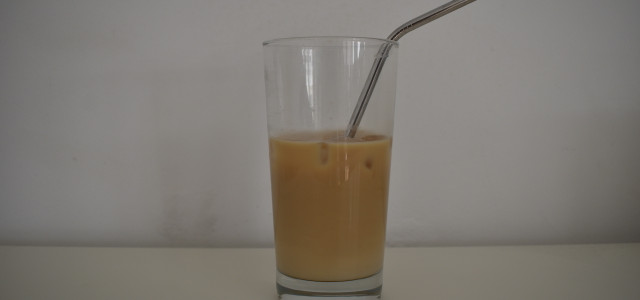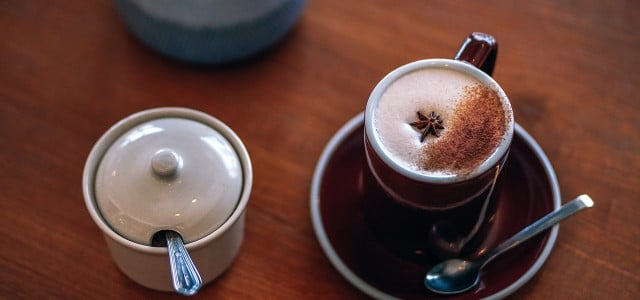With warm weather on the horizon, it's important to stay hydrated. We'll show you how to make a vegan iced dirty chai latte, so you can enjoy this coffeehouse favorite at home.
You probably know a chai latte as a warm and comforting low-caffeine beverage that makes a lovely alternative to coffee or homemade hot cocoa. A very close relative is the dirty chai latte in which a shot of espresso is added, providing that extra (and sometimes much needed) pick-me-up. When the temperatures rise, both of these traditionally hot beverages can easily be made on ice. Learn how to make a vegan iced dirty chai latte yourself.
Iced Dirty Chai Latte Recipe



(Foto: Utopia / K.Stankiewicz)
Making your own iced dirty chai latte is actually incredibly simple, and will save you money, and a trip to your nearest coffee shop. You can choose to make your own chai tea, or stick to tea bags if that’s all you have available. Here’s how to do it:
Ingredients:
- ½ cup water, boiled
- 2 chai tea bags
- 1 tbsp. pure maple syrup
- 1 shot Fair Trade espresso, cooled or ⅓ cup strong cold brew coffee
- 1 cup crushed ice or whole ice cubes
- ¾ cup homemade oat milk
Instructions:
- Steep tea bags in the boiled water for approximately 5 minutes.
- Remove the bags, and stir in maple syrup.
- Add the cold espresso to the tea mixture, and stir to combine.
- Fill a glass with ice, then pour chai mixture in.
- Add oat milk, stir to combine, and enjoy.
Tip: For an extra luxurious experience, consider topping it with a vegan whipped cream and a sprinkle of cinnamon. Alternatively, you can add the entire mixture to a blender, blitz until smooth, and enjoy a blended iced dirty chai latte.
Coffee Sustainability
When making any type of coffee beverage, always be sure to purchase Fair Trade coffee. Coffee growers worldwide often have difficulties earning a living wage – by purchasing certified beans, you’re doing your part to help ensure that the workers are paid fairly for their product.
It’s also worth noting that coffee beans are increasingly being grown in large monoculture farms, which negatively affects biodiversity. Do some research to find out the origin of your beans in order to choose the most sustainable option.
Read more:
- Can You Compost Tea Bags? Some May Even Benefit Your Compost
- Cinnamon Tea: 4 Health Benefits and How to Make Your Own
- Moon Milk: Make This Trendy Ayurvedic Beverage Yourself
Do you like this post?







